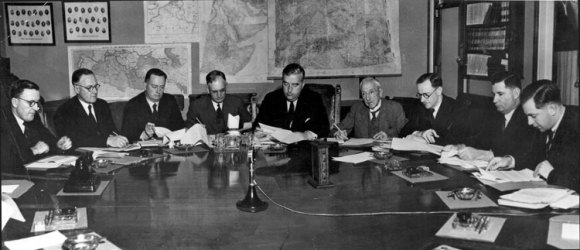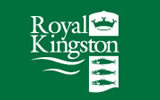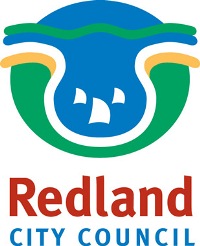Microsoft Dynamics CRM for Local Councils
Louise Alderton, 07 May 2011
Government organisations are constantly in the public eye and face high expectations. While you want to improve your delivery of service and engagement with people there is also the challenge to be more efficient and accountable. In today’s world Local Councils face several challenges; the need for connectivity with other government agencies, an aging population, trying to do more with less, the demand to be more sustainable all while trying to better serve your local citizens. Without the right systems in place to collect and share information, coordination of functions and monitoring it is difficult for Local Councils to fulfil all of these expectations.
 *1
*1
The specific responsibilities of local, district and city councils include community well-being and development; environmental health and safety; infrastructure; recreation and culture; and resource management including land use planning and development control.
Microsoft offers a tailored local government solution with their Citizen Service Platform (CSP) and Dynamics CRM. Component-based and rapidly configurable, CSP can support common technology and process foundations across agencies, helping local councils deliver high-quality, highly efficient services to citizens across their territory.
Let’s take a look at some of the specific features and benefits a Microsoft Dynamics CRM Local Council Solution, with the help of the CSP offers:
360-Degree View
With a Microsoft Dynamics CRM solution you are able to achieve a complete 360-degree view of not only your citizens but every aspect of your organisation from projects and planning to staff collaboration and public communication. This solution provides a central, easily accessible hub for all information. You can maintain a clear picture of citizen needs while providing employees consistent, quality information to assist them with managing queries and other communication.
Up-to-date ICT Infrastructure
Technology has become fundamental in the way we work today and it is particularly important for government organisations to keep up. It can transform the way you work, freeing up resources and serving your citizens more effectively. Microsoft’s CSP can meet your collaboration, security, reliability and regulatory needs while cloud computing now allows you to gather data remotely and work on the go.
Easy Analytics and Reporting
Built in analytics, dashboards and reporting in Microsoft Dynamics CRM can improve regulation compliance and help you to identify trends for more informed and proactive decision-making. All of which make for more effective management of resources and greater efficiencies.
Streamlined Processes
With Microsoft Dynamics CRM’s workflow and automation functionality you can streamline many administrative processes. These might include complaint management, claims processing, incident reporting, economic development initiatives, voter registration, and benefits management. Automating these processes creates huge efficiencies and freeing up resources to be used on more important tasks.
Rapid Development
Using Microsoft Dynamics CRM and the Citizen Services Platform (CSP) allows for rapid development. This framework means development time is minimised and risk is significantly reduced. This framework is like building blocks integrating seamlessly together creating a robust and successful solution for local government.
Let’s take a look at a couple of real-world examples of a Microsoft Dynamics CRM Local Council solution in action:
Royal Borough of Kingston upon Thames
 *2
*2
The council of the Royal Borough of Kingston upon Thames in London, England, handles everything from housing and adult education to taxation and recycling for its 160,000 residents; overall the council provides more than 600 services. While citizens in the community found it difficult not knowing where to direct their inquiries and requests, staff of the council faced problems tracking communications. With each department using different methods and tools to manage information a unified system was in dire need.
With a tailored Microsoft Dynamics CRM solution, Kingston created a centralized contact centre as a single point of contact for citizens. The council also turned to its underlying platform, xRM, as the technological foundation to support the centre. This has transformed how it delivers services to the public and has become a more efficient organization. Citizens have one clear source of information and staff members have the ready resources and workflow processes to handle issues quickly and effectively.
Overall, the solution has had a speedy return on investment. Kingston knows that it made a smart decision from a cost standpoint. Microsoft Dynamics CRM paid for itself within 12 months, and furthermore they are expecting to save more than £5 million [NZ $10.5 million] by 2012.
Read the full case study
Customer Videos:
Redland City Council
 *3
*3
Redland City Council with over 1000 staff, covers an area of approximately 540 square km’s in Queensland, in charge of managing the natural environment and council facilities. Graffiti is an issue for all local authorities but Redland wanted to take a proactive approach to how they manage and improve this concern. They did this through an incident management system built on the Dynamics CRM CSP Platform. With an already significant Microsoft investment (Office and SharePoint) it made sense to continue with a Microsoft product in which staff were familiar and would adopt quickly.
The graffiti management solution allows any citizen to submit incidents of graffiti to council via smartphone, email and via the website. From there several things start to happen – photos can be assessed and then determine the type of clean-up required, a crew is assigned to clean up the graffiti and then they can even send a photo back to the individual who reported it providing great feedback communication. Analytics and dashboards even allow Redland to spot trends of graffiti and from there allocate resources so it either doesn’t happen or is addressed quickly.
The great thing about such a solution is that it can be implemented for other local government authorities for any type of incident management and resulting in a greater level of community engagement and increased efficiencies.
Read the full case study
*1 Image from: http://clintheine.blogspot.com/2010_07_01_archive.html
*2 Image from: http://www.sport-kingston.co.uk/funders-sports-kingston.htm
*3 Image from: http://web01.redland.qld.gov.au/robo/Minutes_Agendas/April_June_08/whnjs.htm

